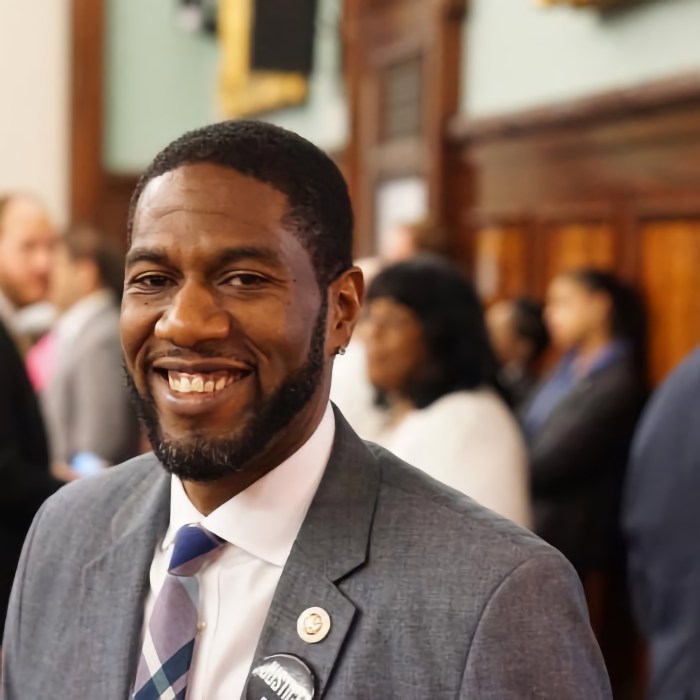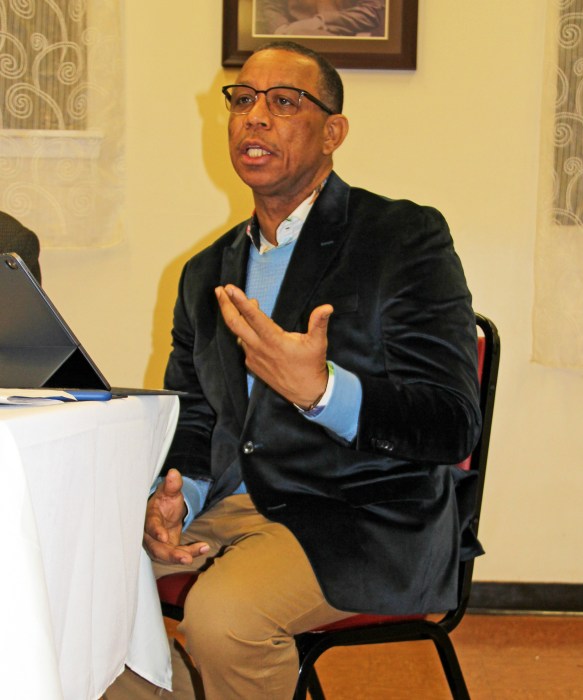By Nelson A. King
The Trump administration in the United States is scrambling to find sufficient jail space to back up its increased crackdowns on illegal Caribbean and other immigrants, but is also moving to curtail protections for these detainees, according to reports.
For more than 15 years, U.S. jails that hold inmates facing deportation have had to follow a growing list of requirements, including notifying Immigration officials if a detainee spends two weeks or longer in solitary confinement and informing detainees how to obtain medical care.
According to the New York Times, new contracts will require that jails where immigrants are detained maintain policies for suicide prevention, solitary confinement and other concerns, but will not spell out what those policies should contain.
“The changes, which will coincide with the closing of an office that develops regulations, will essentially hold these jails to the same standards they must follow for criminal inmates,” said the Times story that ran on April 14. “That is a break from a long-held philosophy that people held on immigration violations, who are considered by law to be ‘civil’ detainees, should be treated differently, and is in line with the president’s belief that the government should be tougher on unauthorized immigrants.”
The paper said the moves also underscore the challenges of rapidly expanding immigration enforcement, a centerpiece of Trump’s campaign platform.
The Times noted that an internal memo, first reported by The Washington Post earlier last week, revealed that the Immigration and Customs Enforcement (ICE) agency has procured an additional 1,100 detention beds — which are not yet being used — and has identified 27 potential facilities with space for 21,000 detainees.
Though policy makers have long wanted to reduce the reliance on local jails, the Trump administration will use them more frequently, at least in the short term, because of the time it takes to build new detention centers designed for immigrants, the Times reported, referring to information obtained from two unidentified officials at the U.S. Department of Homeland Security.
“The officials said the changes were being made to make the contracts more palatable to local officials who run the jails, who have sometimes bristled at the additional accommodations for immigrants,” the Times said.
Kevin Landy, the Obama administration’s director of ICE’s Office of Detention Policy and Planning, which is closing, said the changes would be a departure from years of efforts to improve the health and safety of inmates being held on immigration violations, especially in jails built for serious criminals.
“A decision to simultaneously abandon detention standards could have disastrous consequences for the health and safety of these individuals,” Landry told the Times, hoping that new Homeland Security Secretary John F. Kelly “wouldn’t want to dismantle the progress we had made.
“It’s disappointing that he seems to be doing just that,” Landy added.
ICE spokeswoman Sarah Rodriguez said the agency was “in the midst of examining a variety of detention models to determine which models would best meet anticipated detention needs.”
Rodriguez said “ICE takes very seriously the health, safety and welfare of those in our care. As new options are explored, ICE’s commitment to maintaining excellent facilities and providing first-class medical care to those in our custody remains unchanged.”
Only 10 percent of immigrant detainees are held in facilities operated by ICE, and private prison companies house more than half, said the Times story, which added that the changes affect new contracts for “non-dedicated” facilities — those that house both criminal and immigration detainees, primarily county and municipal jails.
In 2009, the Obama administration established the Office of Detention Policy and Planning, which was responsible for “designing a new civil detention system,” according to the Times.
Since then, the office has overhauled policies, creating as an online system to help detainees’ lawyers and families keep track of their whereabouts. and issued directives to prevent sexual assault and protect pregnant detainees, the Times reported.
Many of the policies of the soon-to-be-shut office remain in place, but officials said they were being reviewed to ensure they do not conflict with Trump’s executive orders on immigration, the Times said.


























